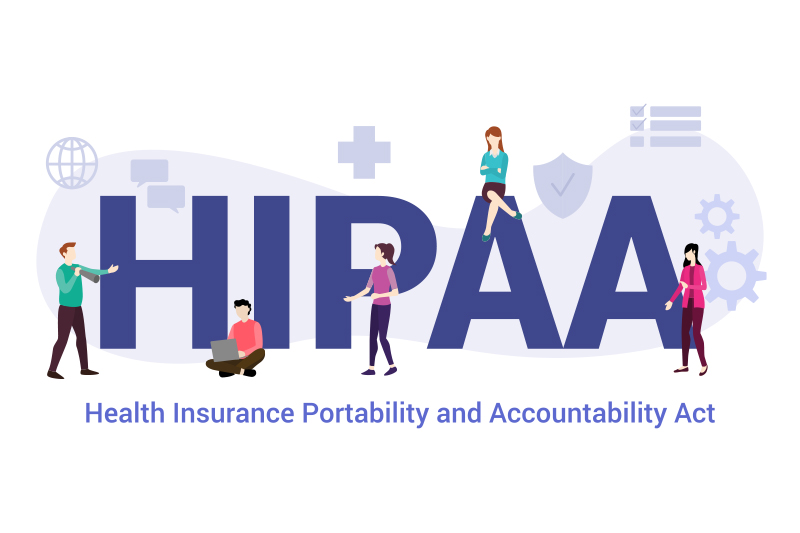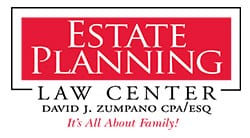One-half of all Americans who reside in nursing homes receive assistance from Medicaid to pay for their care. This is not surprising, given the extraordinarily high cost of long-term care. The real surprise is that half of all Americans don’t seek Medicaid assistance to cover nursing home costs. There are several reasons for this, but one of the most common can be summed up in a single word: hearsay. Or, if you prefer, the rumor mill. Here are just a few examples of the myths surrounding the use of Medicaid to pay for nursing home care: The healthy spouse will be kicked out of the family home The government will take all of your assets You’ll have to live in an old, dilapidated facility You’ll receive inadequate care, or no care at all Rumors like these often come from well-meaning family members, friends, and neighbors. While none of them are
Continue Reading... →Archive for the Blog Category
The Health Insurance Portability and Accountability Act (HIPAA) established national standards to protect the privacy of personal medical information. The HIPAA Privacy Rule sets limits and conditions on the way such information can be used and disclosed in the absence of patient authorization. The rule also provides patients with additional rights regarding their medical information, including the right to examine and obtain a copy of their health records and to request corrections to these records. Most of us would agree that our medical information should be kept private. However, HIPAA is an example of a well-intentioned law that has led to unintended consequences and potential problems for patients and their families. Why? The penalties associated with violating HIPAA—which include civil fines, criminal penalties, and even imprisonment—often make health care providers extremely cautious about sharing medical information with anyone other than their patient. This can include spouses, children, and other close
Continue Reading... →Does Medicare cover a test or procedure recommended by your doctor? You’ll know at a glance if you use Medicare’s new “What’s Covered” app. This free app lets you search for specific services or browse a list of alphabetized services to determine what is covered by Medicare Parts A and B. You can also access basic information about costs. While the app provides an extensive list of the services, tests, and procedures covered (or not covered) by Medicare, it does not take into account a user’s specific co-insurance, supplemental insurance, or deductibles. The What’s Covered app is part of an initiative by the Centers for Medicare and Medicaid Services (CMS) to modernize Medicare and empower beneficiaries. Other CMS initiatives include price transparency tools, improved online support, and a web-chat option on the Medicare Plan Finder. You can get the What’s Covered app from the App Store or Google Play by
Continue Reading... →One-half of all Americans who reside in nursing homes receive assistance from Medicaid to pay for their care. This is not surprising, given the extraordinarily high cost of long-term care. The real surprise is that half of all Americans don’t seek Medicaid assistance to cover nursing home costs. There are several reasons for this, but one of the most common can be summed up in a single word: hearsay. Or, if you prefer, the rumor mill. Here are just a few examples of the myths surrounding the use of Medicaid to pay for nursing home care: The healthy spouse will be kicked out of the family home The government will take all of your assets You’ll have to live in an old, dilapidated facility You’ll receive inadequate care, or no care at all Rumors like these often come from well-meaning family members, friends, and neighbors. While none of them are
Continue Reading... →PLANS FOR LONG-TERM CARE: MEDICARE VS. MEDICAID By and large, Medicare does not provide adequate coverage for nursing home care. For example, Medicare Part A only covers up to 100 days in a skilled nursing facility for a particular illness, and only after the patient has spent at least three days in a hospital. To make matters worse, from day 21 to day 100 the individual in the skilled nursing facility must make a co-payment of $170.50 per day. Few people actually receive Medicare coverage for the full 100 days, in part because of the substantial copay, and in part because restrictions and conditions for coverage are rather stringent. Medicaid, on the other, does cover long-term nursing home care for people who meet its asset and income and limits. One hundred days, one year, ten years—Medicaid will pay for the care as long as the recipient is eligible. Given the
Continue Reading... →MEDICARE, MEDICAID, AND PLANNING FOR LONG-TERM CARE Perhaps you are unsure of the difference between Medicare and Medicaid as it pertains to the challenge of paying for long-term care. If so, you are not alone. The two programs sound similar and both of them provide for medical care. Let’s begin with a short definition of each program. Then, we’ll look at each program’s potential to help you cover the cost of expensive long-term care. Medicare is an entitlement program. Anyone who has reached the age of 65, and is eligible to receive benefits from Social Security, can also receive Medicare. Medicaid, on the other hand, is a public assistance program. It is designed to help those with limited assets and income pay for medical care. In order for a person to receive assistance from Medicaid to pay for nursing home care, he or she must meet certain asset and income
Continue Reading... →WHAT IS MEDICAID PLANNING? Mary’s husband recently went into a nursing home and she was approached by the social worker who inquired of her financial information and how she intended to pay for her husband’s care. It was over $8,000.00 per month. The case worker asked if Mary was going to apply for Medicaid. Mary was very confused so she went to see a qualified elder law attorney. The attorney explained to Mary that Medicaid is a government program to help pay for nursing home costs, but to qualify, Mary had to meet certain income and asset restrictions. Mary was confused even more. She told the attorney she was already on Medicare and that she didn’t know why she had to do anything, why wasn’t Medicare paying. Again, the attorney explained that Medicare is health insurance for individuals over 65 or who have been disabled for two years. Medicaid,
Continue Reading... →Click here to watch Dave Zumpano on WKTV NewsTalk. Dave Zumpano joins us from the Estate Planning Law Center. Tonight’s topics included IRA’s and when they are protected and when they are at risk. Zumpano joins us on the Live at Five News hour twice each month to take Estate Planning questions over the phone. He also sits in on News Talk on NEWS Channel 2 at Noon.
Continue Reading... →Click here to watch Dave Zumpano on WKTV NewsTalk. Dave Zumpano, from the Estate Planning Law Center, joins us tonight on the Live at Five Newshour. This segment touches upon the different roles lawyers, financial advisors and accountants play in successful estate planning. Other frequently asked questions include nursing home concerns, the difference between a will and a trust and also naming an executor to your estate.
Continue Reading... →Each year the government modifies the amounts allowed in determining eligibility for federal or state benefits and the tax rates. Despite the confusion of numbers, I will attempt to outline the new numbers in place effective January 1, 2015. Medicaid Of notable concern to most individuals is the ability to qualify for Medicaid should the need for long-term care arise. Currently under the Medicaid laws in New York, an individual is allowed to have assets of up to $14,850.00 and a spouse living in the community is entitled to have assets up to $119,220.00 and still be considered eligible for Medicaid. In addition, the individual monthly income allowance is $50.00 for an individual in a long-term care facility and all remaining income would be required to pay for the cost of care. If an individual residing in a nursing home has a spouse in the community, then the spouse in
Continue Reading... →



